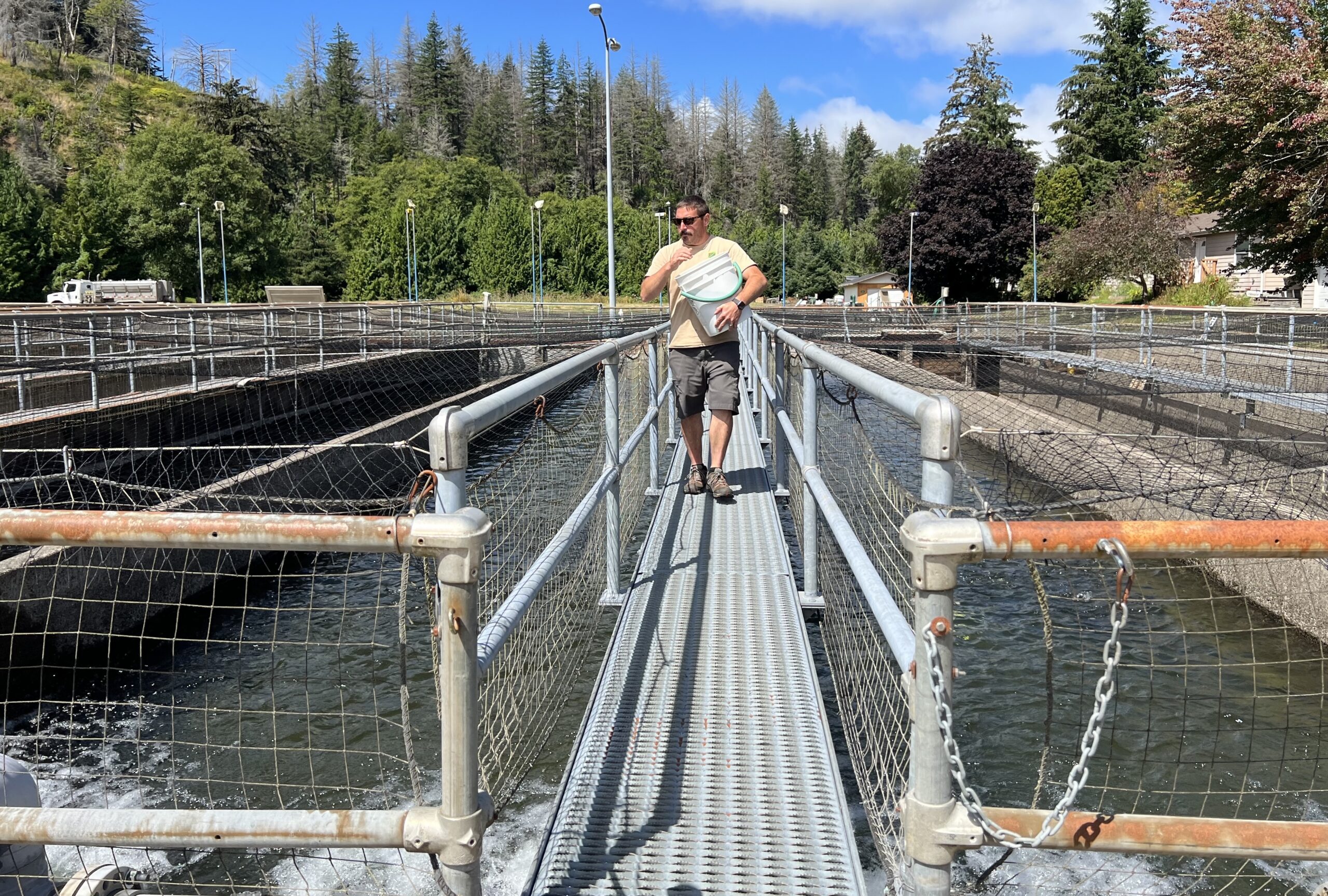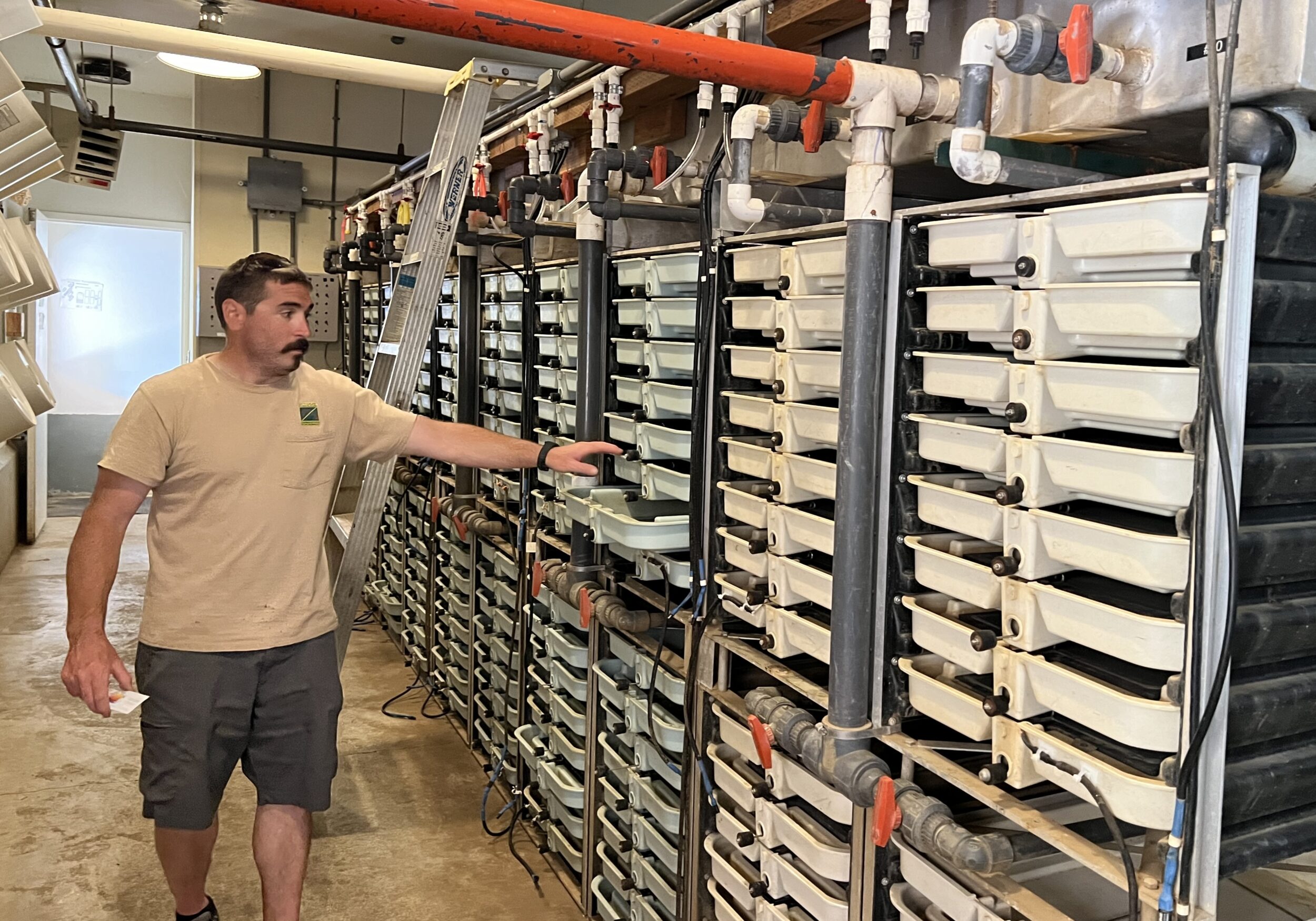
By ZACH URNESS/Salem Statesman Journal
The price of fishing and hunting licenses would increase 26 percent to 28 percent over the next five years, two hatcheries closed and some wildlife programs cut under the proposed $607 million budget for the Oregon Department of Fish and Wildlife that is working its way through the Oregon Legislature.
A resident fishing license would increase from $44 to $50 in 2026 and $56 in 2030, while a hunting license would go from $34.50 to $39 in 2026 and $45 in 2030. Additional tags and endorsements would increase by similar amounts.
Agency officials cite inflation and costs, combined with flat revenue, in the need to raise prices.
“We don’t like to increase fees and nobody likes to pay more, but this is critical to maintaining our current operations,” said Ken Loffink, chief operating officer for ODFW.
Loffink said while inflation has been high across the board, it’s been “extraordinary” for programs like hatchery operations, noting the price of fish feed is up nearly 20 percent.
ODFW hasn’t raised license fees since 2020.
“Our costs are way up but we’ve had flat revenue, and that creates a gap,” Loffink said. “We don’t want to put filling that entire gap on the backs of hunters and anglers, which is why in addition to the fee increases, we’ve identified $8.5 million in agency reductions.”
The reductions include cutting some programs, closing two fish hatcheries — including one in Lincoln County — cutting fish monitoring and slashing $1 million in administrative costs.
Key outdoor groups, including Trout Unlimited and the Oregon Hunters Association, said they supported the proposed budget.
“At the end of the day, we support the proposed fee increases but we understand that those can be a tough pill to swallow for some license buyers,” said James Fraser, Oregon policy director for Trout Unlimited.
Other groups, including the Native Fish Society, criticized ODFW for its continued spending on hatcheries, saying it “cannibalizes the agency’s budget” and that habitat restoration should be the priority.
The ODFW budget, clustered together in a series of bills — House Bills 5009, HB 2342 A, HB 2343 A and HB 2345 — totals $607 million for the 2025-27 biennium. It’s the highest in agency history and includes $20 million for maintenance on the state’s crumbling network of fish hatcheries. The agency’s budget was $594 million for the 2023-25 biennium.
$9 ocean endorsement
The ODFW budget bills moved into the full Joint Committee On Ways and Means last week. It will have a work session Friday, June 6. If it passes, it’ll move to the House and Senate floors.
There are no more public hearings for the bills, but legislators can still request changes and add amendments.
Almost all fishing and hunting licenses, tags and endorsements would increase gradually over the next five years.
Hunting licenses and tags would increase 12 percent in 2026 and 8 percent in 2028 and 2030, while fishing licenses and tags would increase by 14 percent in 2026, followed by 6 percent in both 2028 and 2030.
Additional notes on fee increases:
The youth fishing and hunting license combo would remain $10 for kids aged 13 to 17. Fishing and hunting remains free up to age 12.
A new proposed $9 “ocean endorsement” would be required for all ocean fishing but would not include salmon. ODFW said its designed to “provide long term funding to complete coastwide surveys necessary to preserve and properly manage species like black rockfish.”
Commercial fees would also increase gradually, going up by 12 percent in 2026, and 4 percent in both 2028 and 2030.
The higher rate of increase for combined angling tags “reflects the complexity of managing salmon and steelhead, mixed runs that include endangered fish while also keep the general angling license lower for anglers not targeting salmon and steelhead,” ODFW said.

Cuts to ODFW hatcheries
Under the legislation, ODFW would close two fish hatcheries – the Salmon River hatchery in Otis and Rock Creek hatchery near Roseburg — and invest $20 million in upgrading the remaining 30 across the state.
Other cuts would include reducing the amount of fisheries monitoring — not entirely, but “we’d have less capacity in that realm,” Loffink said. Examples could include eliminating fish counting stations on rivers or not staffing them.
Another $1 million would be cut in administrative costs, which could include website support programs, seasonal staff in licensing and other programs.
The state’s largest hunting group, the Oregon Hunters Association, said they supported the fee increases.
“While no one is excited to pay more for our hunting opportunities, the Oregon Hunters Association is supporting the proposed rate increases,” said Amy Patrick, policy director for OHA.
Patrick said ODFW has kept license fees increases below inflation levels and has “prioritized the fiscal responsibility of the agency, holding off on the rate increase until absolutely necessary,” Patrick said.
Fraser, with Trout Unlimited, noted that because ODFW doesn’t take much general fund money — it amounts to about 13 percent of its proposed budget — there “aren’t many ‘dials’ that they can turn” to increase revenue, he said.
“The primary alternatives to increasing fees would both require actions by the Legislature, by either materially increasing the general fund contribution to the agency or securing additional funding streams for the agency,” Fraser said. “Unfortunately, neither of those have been viable options in past legislative sessions.”
The Native Fish Society said ODFW’s budget misplaced its priorities, proposing spending “a million dollars every week just to raise hatchery fish” rather than restoring habitats that would allow wild, self-sustaining fish to thrive, said Jennifer Fairbrother, the environmental group’s legislative and policy director.
- Zach Urness can be reached atzurness@StatesmanJournal.com or (503) 399-6801.




















Another very sad impact of the Otis Hatchery closing will be the loss of the Food Share of Lincoln County’s hatchery salmon program which provided over 3,000 pounds of salmon to the local community last year.
For this trout fishing nut I do not like the fee increase but if it is necessary for the future of the outdoor sport fishing industry in Oregon then I am all for it. I will pay each and every year, no if ands or buts about it. The state runs great outdoor programs; what’s a little increase, nothing nothing at all. Picking my license up this weekend and heading out camping and fishing at a mountain lake for two weeks. I’m going to pay whatever it may cost for 2 licenses and 2 extra poles. My wife and I will have a blast. I love fishing in Oregon. Sincerely, a true and blessed Oregonian.